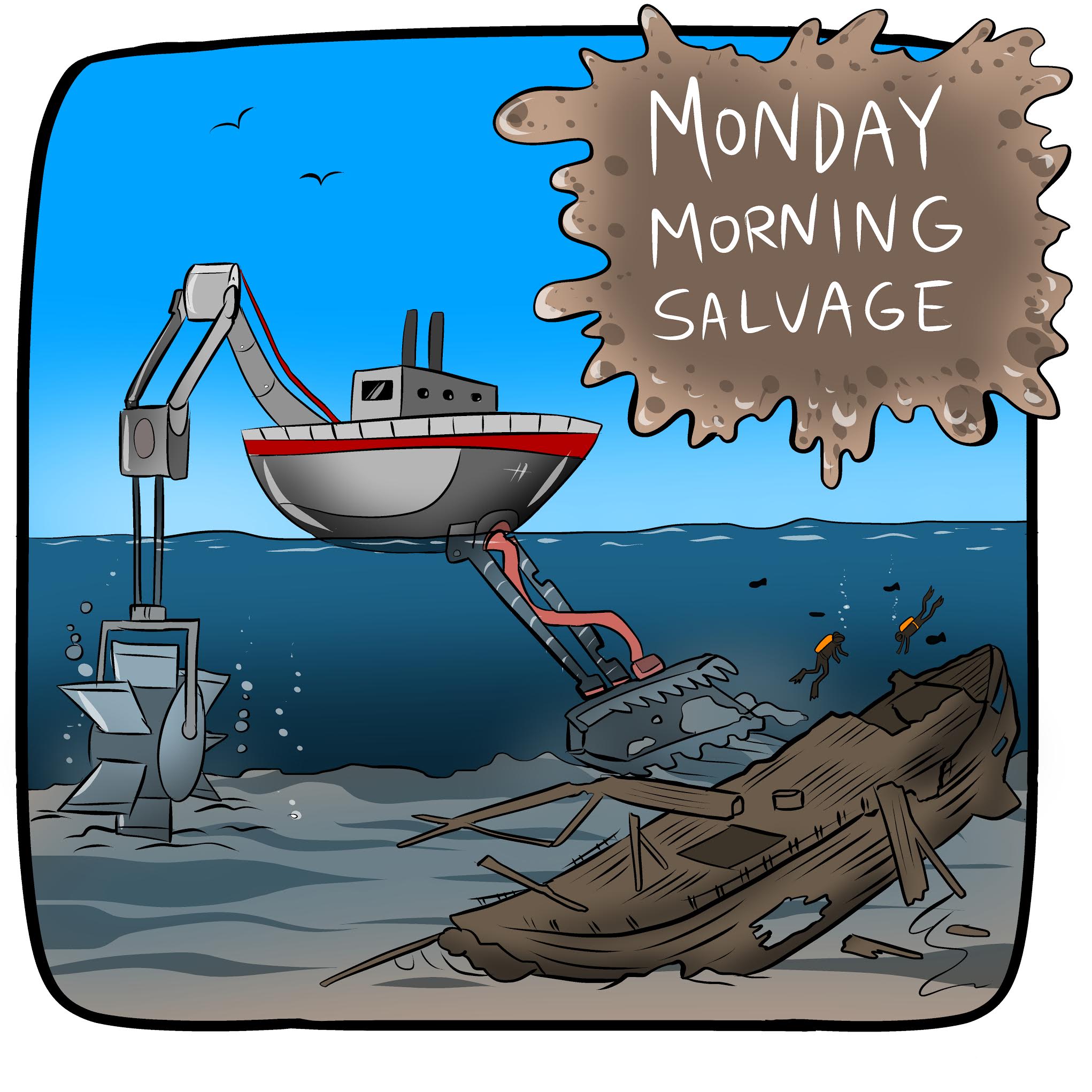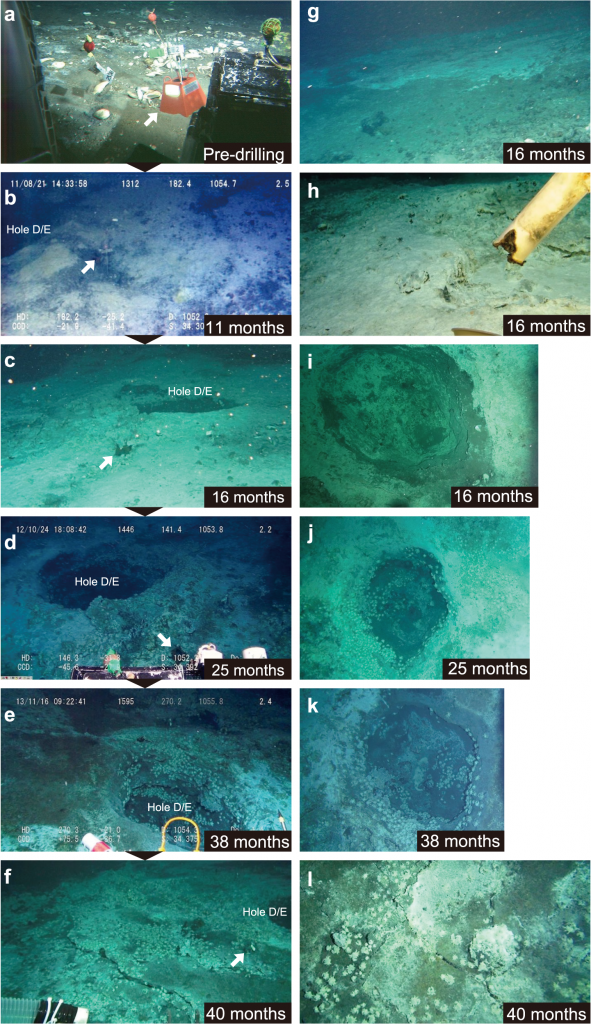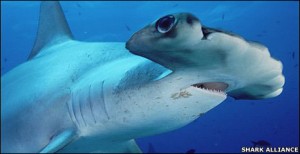Transcript available below.
Tag: Japan

Foghorn (A Call to Action!)
It’s month two of the longest shutdown in US history and there’s only one party who won’t allow a vote to reopen the government proceed. Have you called you senator today?
And while I have your attention, FYI:
Flotsam (what we’re obsessed with right now)3-D Printing the Ulitmate Deep-Sea Christmas Tree
- Oceans Warming Faster Than Predicted, Scientists Say and Ocean Warming Is Accelerating Faster Than Thought, New Research Finds.
- Ministry hints Putin’s Arctic ambitions are not realistic. There is unease in several Russian government ministries as officials start to understand that the President’s objectives for the Northern Sea Route can not be reached. The only way to please the president might be to expand the sea route itself.
- Hagfish are so good. We don’t deserve hagfish.

Fog Horn (A Call to Action)
- It’s Native American History Month. Southern Fried Science recognizes that our servers are housed on the occupied land of the Timpanogos people while the majority of our writers live on unceded Powhatan territory. This November, Try Something New: Decolonize Your Mind.
Flotsam (what we’re obsessed with right now)
- Boaters stumble on massive Caribbean “gyre” of plastic garbage. “Gyre is in quotes because I’m almost certain that this is debris from the 2017 Atlantic Hurricane season, rather than an accumulation of decades of plastic is a circulating ocean current. It’s still shocking to see.
https://www.youtube.com/watch?v=GSMGKwZBaWM
- The ARA San Juan, one or Argentina’s two diesel-electric submarines, is missing. Search and rescue is mobilizing and there’s hints that the sailors tried to send out a signal Saturday.
- Without a Treaty to Share the Arctic, Greedy Countries Will Destroy It. Cosign.

A longtime submariner I know tells the story of a most unusual dive. On this particular plunge, they went down into the briny deep to place what can best be described as a giant manhole cover on the seafloor. There was a hole, and, by all accounts, the sea was draining in to it.
For more than half-a-century, we’ve been drilling holes in the bottom of the sea. Some reveal the buried history of the evolution of our oceans. Others uncover vast wells of crude oil. Science, exploration, and exploitation have all benefited from ocean drilling programs. But what happens to the seafloor when you punch a hole in the ocean? In my friend’s case, the drilling program opened a sub-sea cavern, resulting in changes to local current regimes, potentially disturbing the surrounding benthic community. The most practical solution was to simply plug the hole.
We’ve punched a lot of holes in the seafloor, but despite a few anecdotes and scant research, we know precious little about how these holes actually alter the marine environment. This is particularly worrying, as deep-sea mining at hydrothermal vents, manganese nodule fields, and oceanic crusts are slowly creeping out of the realm of science fiction and into our oceans. Ocean drilling in the deep sea is perhaps the closest analog to industrial-scale deep-sea mining. Understanding the potential impacts is critical to designing management and mitigation regimes that protect the delicate deep seafloor.
Read More “What happens when we punch a hole in the seafloor?” »
The Fukushima Daiichi nuclear power plant is back in the news, with recent reports of continued leaks. Coming on the heels of these new reports is a viral blog post entitled 28 Signs That The West Coast Is Being Absolutely Fried With Nuclear Radiation From Fukushima. The article is a paranoid, poorly reasoned attempt to link the tragedy of the Fukushima disaster to just about every environmental issue facing the US west coast in the last few months. At its best, it’s an illogical piece of post-modern absurdism. At its worst, its empirically false and intentionally misleading, rife with out-of-context quotes and cherry-picked data. The author had 28 chances to make a single reasonable point, and every single one rang hollow.
Of course it went viral.
Read More “28 fallacies about the Fukushima nuclear disaster’s effect on the US West Coast” »
httpv://youtu.be/hNEoyUdXgHc
Read More “Watch Blue Pints Episode 3: Japanese Kelp Fishing and Cryptic Species” »
Last week, I previewed the annual NAFO meeting. Two elasmobranch conservation measures (reducing the Total Allowable Catch for thorny skates to the level that the scientific council recommended and requiring fishermen to report the species of the sharks they catch) were to be discussed. That meeting is now concluded, and the results, while not … Read More “Thorny skate protection: NAFO falls short” »

 Palau’s new shark sanctuary covers 600,000 square kilometers of almost all open ocean, making patrolling for outlaws a bit like searching for a needle in a haystack. In addition, Palau is attempting to make its new sanctuary a model for marine conservation for other small island nations, many of which are more water than land. So the eyes of the Pacific, if not the world, are on Palau to set a model. And they’re going to need help – but the big question is from whom?
Palau’s new shark sanctuary covers 600,000 square kilometers of almost all open ocean, making patrolling for outlaws a bit like searching for a needle in a haystack. In addition, Palau is attempting to make its new sanctuary a model for marine conservation for other small island nations, many of which are more water than land. So the eyes of the Pacific, if not the world, are on Palau to set a model. And they’re going to need help – but the big question is from whom?
…was a hoax. A report that the Japanese government will scrap all research whaling has been dismissed as a hoax. source So please, stop e-mailing me this: “Effective immediately, Japan will no longer conduct scientific research on whale populations which require capture and dissection,” said Chief Cabinet Secretary Makoto Inoue, speaking at a press conference … Read More “The end of whaling in Japan…” »
 We sparked a good debate over the effectiveness of direct action conservation movements over at the post “Is Sea Shepherd really saving whales?” One of the most difficult questions raised was if Sea Shepherd wasn’t there, would the Japanese make their full quota? The data presented in that post was inconclusive, because the quota increase corresponded to the beginning of SSCS’s Southern Ocean campaign, so we have no time period in which the Japanese quota was increased while Sea Shepherd was absent.
We sparked a good debate over the effectiveness of direct action conservation movements over at the post “Is Sea Shepherd really saving whales?” One of the most difficult questions raised was if Sea Shepherd wasn’t there, would the Japanese make their full quota? The data presented in that post was inconclusive, because the quota increase corresponded to the beginning of SSCS’s Southern Ocean campaign, so we have no time period in which the Japanese quota was increased while Sea Shepherd was absent.